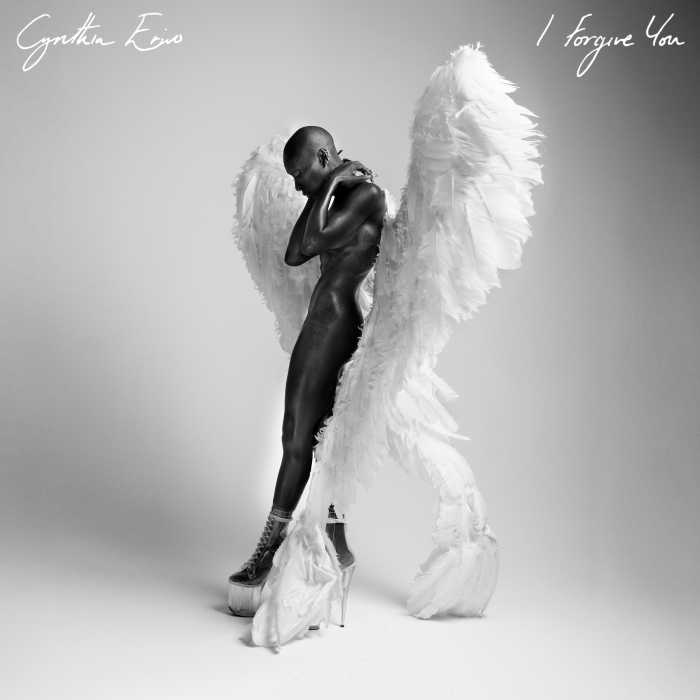Gay City News’ October music roundup takes a listen to the latest albums by gay pop star Troye Sivan and non-binary electronic singer and producer yeule.
Troye Sivan | “Something to Give Each Other” | Capitol
Taking five years between albums has allowed Troye Sivan to think hard about his image. In the age of TikTok dominance, the elaborate music videos for the three singles from “Something to Give Each Other” are crucial to understanding it. In “One of Your Girls,” he acts out the chorus by performing it in extremely convincing drag. “Rush” imagines a queer-friendly frathouse in full debauchery, with Sivan smoking weed out of a banana, drinking beer straight from the keg and posing outside a glory hole. “Got Me Started” is a Broadway-worthy musical number.
The title track of Sivan’s last album, “Bloom” went on to define his public perception. A celebration of bottoming, it still worked through subtle double entendres. Inspired by Lil Nas X, “Something to Give Each Other” is far bolder, directly addressed to a queer audience. (Poppers are referenced so many points that it practically feels like sponsored content: “you got my heartbeat racing…I feel the rush, addicted to your touch” isn’t only addressed to a man.) While it’s not an album entirely devoted to partying and sex, all but a few songs are celebratory. Sivan doesn’t spend a second apologizing for making music centered around his desire.
“Got Me Started” samples so much of Bag Raiders’ dance hit “Shooting Stars” that it’s practically a cover, while other songs draw on house music. Still, the production is airy, leaving room for Sivan’s confident vocals, while the beats stay midtempo, but the mood stays buoyant and positive. Even when Sivan sings about unfulfilled desire, his tone remains calm and light rather than needy. (“One Of Your Girls” lusts after a closeted, possibly heterosexual man.) “How to Stay With You” is the only song that strikes a note of heartbreak: the hangover after a night of clubbing. On “Honey,” he calls out “give me the courage to say all the s**t I mean,” but he’s already there. In a weak year for pop, this is one of the high-water marks.
Yeule | “Softscars” | Ninja Tune

On her third album, yeule sounds much less mysterious than they did a few years ago. Their debut album, “Serotonin,” was an icy, foreboding work with few easy entry points. Its atmosphere didn’t just sound futuristic, it suggested a soundtrack for an imaginary sci-fi movie about interstellar travel. Yeule has continued to communicate through such imagery: “Softscars” contains lyrics about “cyber meat” and “virtual lover.” At this point, such cyberpunk and anime references are pretty common in electronic music. Yeule pays tribute to Japanese cinema by covering “Fish in the Pool,” from the soundtrack of Shunji Iwai’s “Hana and Alice.”
Yeule’s latest music endeavors to unite her real self and artistic persona. At first, they put photos of themselves on their album covers; the artwork for “Softscars” completely departs from realism, looking like an AI image of an anime waif.
Their vocals’ exaggerated breathiness continues such imagery. On “Bloodbunny,” the childish overtones carry a sinister aura, as yeule sings with a nursey rhyme flow about inviting someone to “bite me too.” Yeule flirts with North American cyberpunk’s techno-Orientalism to flip it around to reveal the real pain beneath fantasy images of femininity. “Software Update” calls out the dehumanizing effects of those perceptions. If they sometimes sing as though they were a cyborg, they’re still prone to depression and jealousy
The album pushes electronic pop towards a more muscular sound. Its guitars hit hard. “Sulky Baby” and “4ui2” call back to the melancholy of Smashing Pumpkins and Alice In Chains. “Softscars” even lives up to the rock tradition of ending an album with a slow ballad. Still, no one would mistake yeule for a grunge band’s singer. They continue to sing in a high, processed voice. Few singers would place chiptune melodies over acoustic guitars. This combo of sounds still seems fresh. As Yeule strives to make more accessible music, “Softscars” challenges the notion that there’s any division between analog and digital. Much of the time, it forges a new form of rock music that challenges the sonic, racial and gender exclusions of the past. It’s possible to imagine “Sulky Baby” as a hit on ‘90s alt-rock radio, but could a non-binary Singaporean have gotten there at the time? The tension between yeule and Nat Cmiel, the person who created them, yields great results.



































